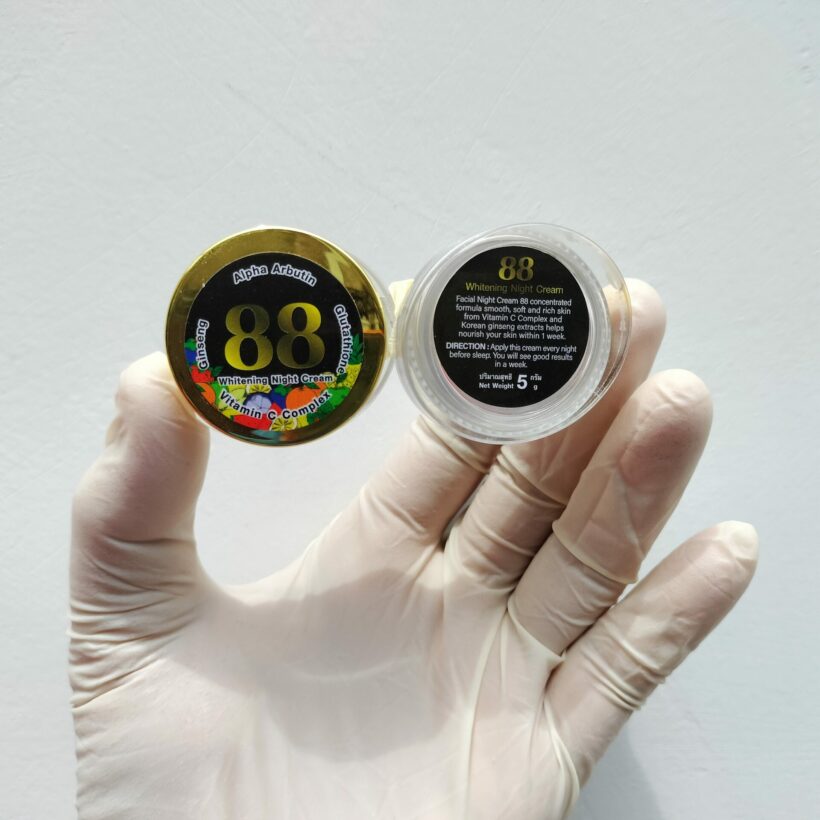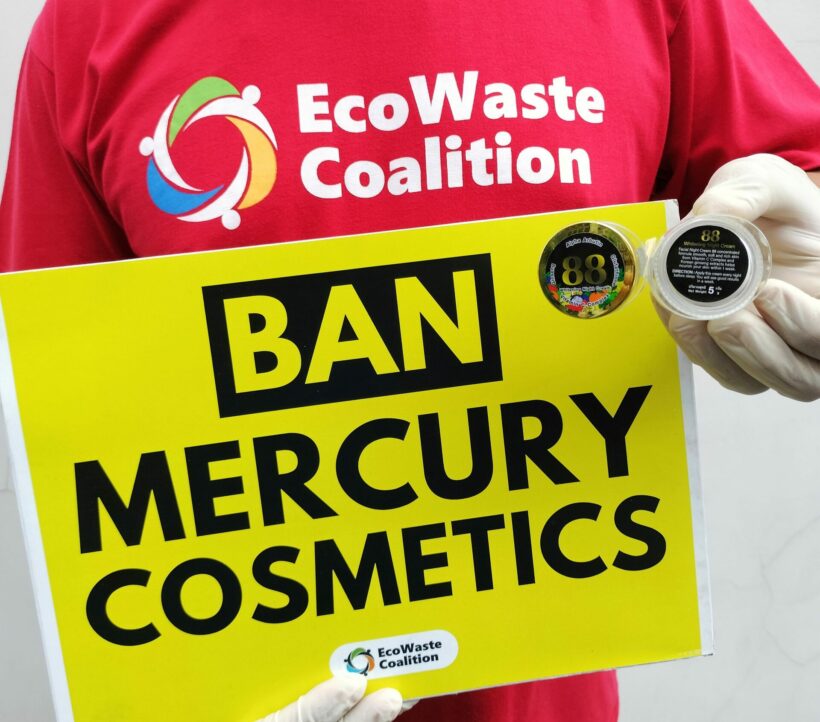10 December 2024, Quezon City. The watchdog group EcoWaste Coalition lauded the Food and Drug Administration (FDA) for banning a cheap but highly toxic whitening cream that is contaminated with high levels of mercury, a potent neurotoxin.
FDA Advisory No. 2024-1639, dated December 3, 2024, warned consumers against the purchase and consumption of imported 88 Whitening Night Cream, which is being sold without proper authorization from the agency.

This tiny package of skin whitening cream contains a staggering 16,070 ppm of mercury, way above the 1 ppm limit. As reported by the group to the FDA last September 29, 88 Whitening Night Cream with a net weight of five grams is loaded with mercury, way above the one part per million (ppm) limit under the ASEAN Cosmetic Directive.Obtained from a local online seller for P43, the facial cream contains a staggering 16,070 ppm of mercury based on the chemical screening conducted by the group using a handheld X-Ray Fluorescence (XRF) device.
“We find it very disturbing that such a product in a very small package contains a mind-boggling amount of mercury and is easily obtainable online,” said Aileen Lucero, National Coordinator, EcoWaste Coalition.
“Worst, the product is to be applied every night before going to bed to get good results in a week, as stated on the label, ensuring prolonged exposure to mercury that can be inhaled and get absorbed by the skin while sleeping,” she added.
“In line with the public health warning issued by the FDA, we urge consumers to stop using 88 Whitening Night Cream. We also ask online shopping platforms to remove all listings for this poisonous product at once,” she added.
While its label provides a description of the product and direction for its use, no information was given regarding its production and expiration dates and its manufacturer or local distributor.
However, based on its appearance, the product is a mini-version of the 88 Whitening Night Cream, which the FDA Thailand banned for containing mercury, as well as betamethasone (a regulated ingredient in prescription medicines).
“Cheap or expensive, we strongly caution consumers from buying and using skin-lightening products with uncertain composition, from unspecified sources and without authorization from the FDA,” said Lucero.
“Instead of spending hard-earned money for chemical whiteners, we encourage our people to embrace our natural skin color and resist skin-tone bias,” she added.
Mercury is a highly toxic substance with no known level of exposure that is considered safe, the EcoWaste Coalition pointed out, adding pregnant women and children are most vulnerable to the adverse effects of mercury exposure.
As stated in the fact sheet “Mercury in Skin Lightening Products” published by the World Health Organization (WHO), “adverse health effects of the inorganic mercury contained in skin lightening creams and soaps include: kidney damage, skin rashes, skin discoloration and scarring, reduction in the skin’s resistance to bacterial and fungal infections, anxiety, depression, psychosis, and peripheral neuropathy.”
“Mercury in soaps, creams, and other cosmetic products is eventually discharged into waste water,” the WHO warned. “The mercury then enters the environment, where it becomes methylated and can enter the food chain as highly toxic methylmercury in fish.”
“Pregnant women who consume fish containing methylmercury can transfer the mercury to their fetuses, which can result in neuro-developmental deficits in the children,” the WHO further warned.
References:
https://www.fda.gov.ph/fda-advisory-no-2024-1639-public-health-warning-against-the-purchase-and-use-of-unauthorized-cosmetic-88-whitening-night-cream/
https://iris.who.int/bitstream/handle/10665/330015/WHO-CED-PHE-EPE-19.13-eng.pdf?sequence=1










